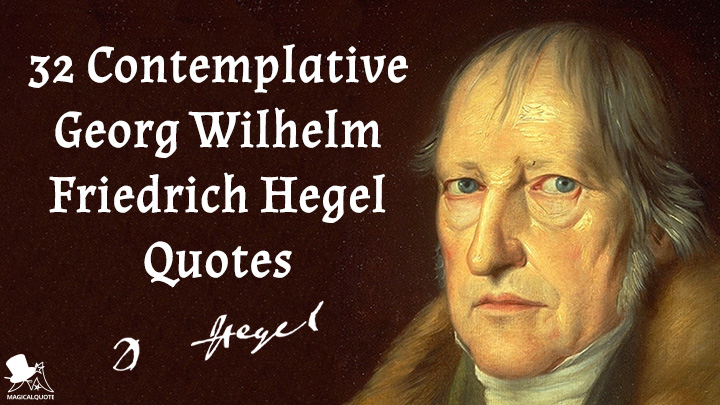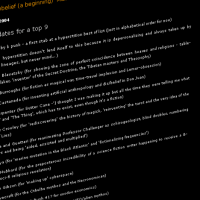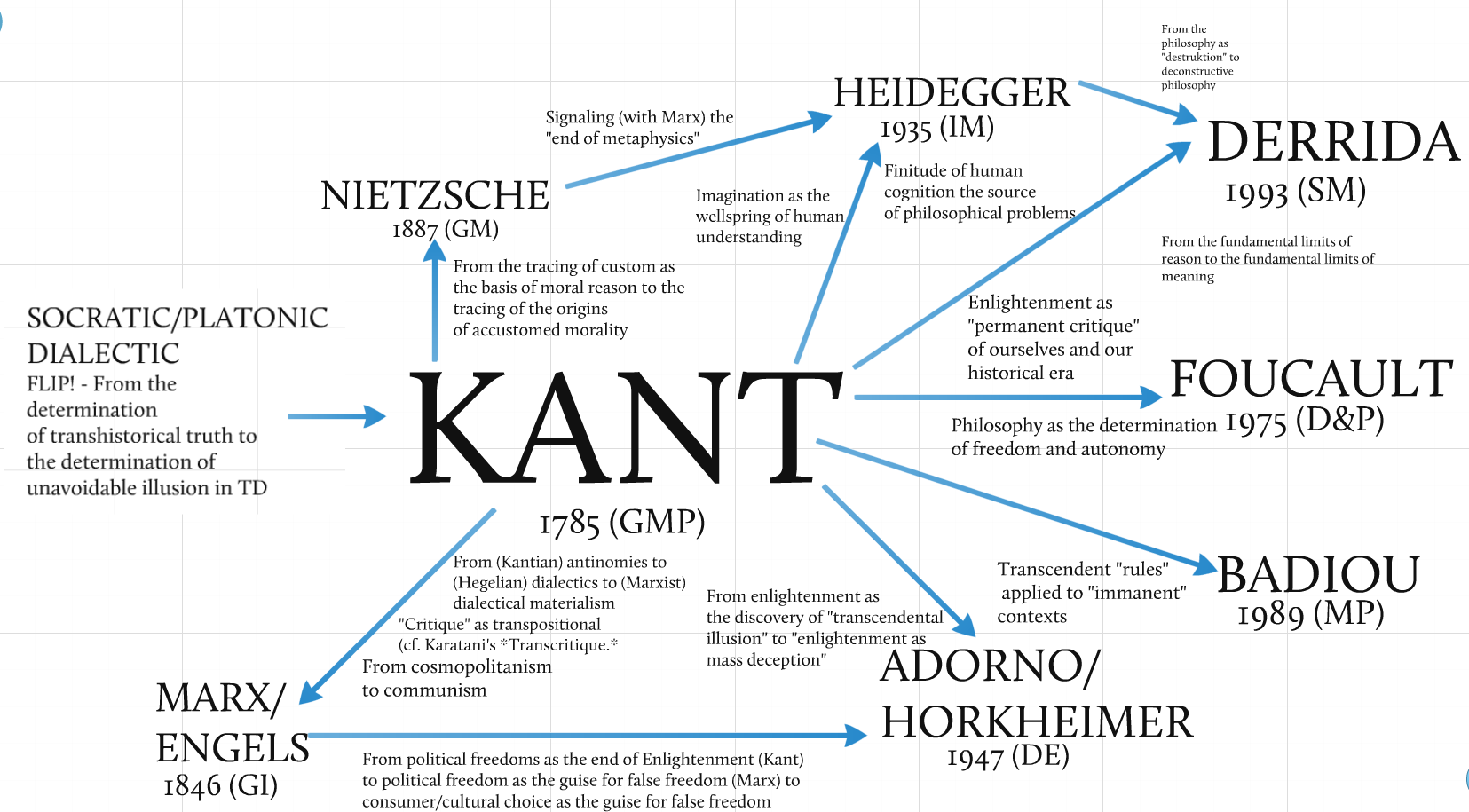 Georg Wilhelm Friedrich Hegel (born August 27, 1770, Stuttgart, Württemberg (now Germany) – died November 14, 1831, Berlin) was a German philosopher and one of the founding figures of German Idealism.
Georg Wilhelm Friedrich Hegel (born August 27, 1770, Stuttgart, Württemberg (now Germany) – died November 14, 1831, Berlin) was a German philosopher and one of the founding figures of German Idealism.
Based on Immanuel Kant’s transcendental idealism and Rousseau’s politics, Hegel created an elaborate system of philosophy which included history, art, ethics, and religion. Apart from that, he is also known for absolute idealism, master–slave dialectic and concepts Aufheben (“sublation”) and Geist (“mind/spirit”).
His most famous works are The Phenomenology of Spirit (1807), The Science of Logic, in three volumes (1812, 1813, 1816), Encyclopedia of the Philosophical Sciences (1817) and The Philosophy of Right (1821).
Georg Wilhelm Friedrich Hegel is often considered one of the most influential thinkers of the 19th century.
1
Nothing great in the World has been accomplished without passion.
Lectures on the Philosophy of History (1837)
2
Education is the art of making man ethical.
Elements of the Philosophy of Right (1820)
3
What experience and history teach is this — that peoples and governments never have learned anything from history, or acted on principles deduced from it.
Lectures on the Philosophy of History (1837)
4
An idea is always a generalization, and generalization is a property of thinking. To generalize means to think.
Elements of the Philosophy of Right (1820)
5
People who are too fastidious towards the finite, never reach actuality, but lie idle in abstraction, till their light gradually dies away.
‘The Doctrine of Being,’ Science of Logic (1816)
6
When liberty is mentioned, we must always be careful to observe whether it is not really the assertion of private interests which is thereby designated.
Lectures on the Philosophy of History (1837)
7
To be independent of public opinion is the first formal condition of achieving anything great or rational whether in life or in science.
Elements of the Philosophy of Right (1820)
8
Philosophy is by its nature something esoteric, neither made for the mob nor capable of being prepared for the mob.
Introduction to the Critical Journal of Philosophy, cited in W. Kaufmann, Hegel (1966), p. 56
9
In the case of various kinds of knowledge, we find that what in former days occupied the energies of men of mature mental ability sinks to the level of information, exercises, and even pastimes for children; and in this educational progress we can see the history of the world’s culture delineated in faint outline.
The Phenomenology of Spirit (1807)
10
The Few assume to be the deputies, but they are often only the despoilers of the Many.
Lectures on the Philosophy of History (1837)
11
The learner always begins by finding fault, but the scholar sees the positive merit in everything.
Elements of the Philosophy of Right (1820)
12
Freedom is the truth of necessity.
13
Amid the pressure of great events, a general principle gives no help.
Lectures on the Philosophy of History (1837)
14
Truth in philosophy means that concept and external reality correspond.
Elements of the Philosophy of Right (1820)
15
The very fact that something is determined as a limitation implies that the limitation is already transcended.
16
It is easier to discover a deficiency in individuals, in states, and in providence, than to see their real import or value.
Lectures on the Philosophy of History (1837)
17
We do not need to be shoemakers to know if our shoes fit, and just as little have we any need to be professionals to acquire knowledge of matters of universal interest.
Elements of the Philosophy of Right (1820)
18
The richer in relationships thoughts become, the more confused and meaningless becomes their representation in such forms as numbers.
19
The history of the world is none other than the progress of the consciousness of freedom.
Lectures on the Philosophy of History (1837)
20
Once the state has been founded, there can no longer be any heroes. They come on the scene only in uncivilized conditions.
Elements of the Philosophy of Right (1820)
21
Life is essentially the concept which realises itself only through self-division and reunification.
Philosophy of Nature (1817)
22
To him who looks upon the world rationally, the world in its turn presents a rational aspect. The relation is mutual.
Lectures on the Philosophy of History (1837)
23
Mere goodness can achieve little against the power of nature.
Elements of the Philosophy of Right (1820)
24
World history is a court of judgment.
Lectures on the Philosophy of History (1837)
25
Animals are in possession of themselves; their soul is in possession of their body. But they have no right to their life, because they do not will it.
Elements of the Philosophy of Right (1820)
26
Only what is living feels a lack.
Philosophy of Nature (1817)
27
Poverty in itself does not make men into a rabble; a rabble is created only when there is joined to poverty a disposition of mind, an inner indignation against the rich, against society, against the government.
Elements of the Philosophy of Right (1820)
28
The History of the World is not the theatre of happiness. Periods of happiness are blank pages in it, for they are periods of harmony, periods when the antithesis is in abeyance.
Lectures on the Philosophy of History (1837)
29
Personality is that which struggles to lift itself above this restriction and to give itself reality, or in other words to claim that external world as its own.
Elements of the Philosophy of Right (1820)
30
To make abstractions hold in reality is to destroy reality.
Lectures on the Philosophy of History (1837)
31
I possess my life and my body, like other things, only in so far as my will is in them.
Elements of the Philosophy of Right (1820)
32
Life has a value only when it has something valuable as its object.
Lectures on the Philosophy of History (1837)
 Georg Wilhelm Friedrich Hegel (born August 27, 1770, Stuttgart, Württemberg (now Germany) – died November 14, 1831, Berlin) was a German philosopher and one of the founding figures of German Idealism.
Georg Wilhelm Friedrich Hegel (born August 27, 1770, Stuttgart, Württemberg (now Germany) – died November 14, 1831, Berlin) was a German philosopher and one of the founding figures of German Idealism.






















































Leave a comment